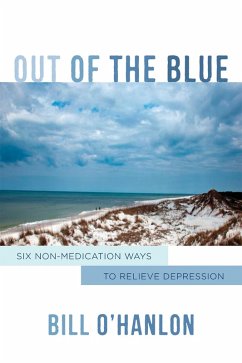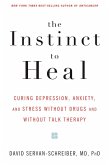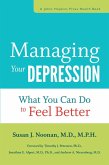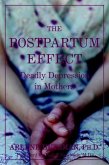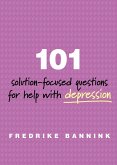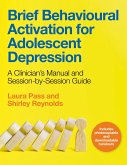Alternatives to standard drug treatments for this common problem.
Depression is one of the most common issues that people bring to therapy. It is also a mental health condition with several well-known and readily available medications to treat it. That said, every clinician knows that medications do not work for all clients, and even if they do work they can often come with unwelcome side effects that are difficult and hard to bear. In short, medications are not foolproof.
Fortunately today, with rising interest in non-drug approaches, effective and easy-to-implement alternative strategies exist for dealing with depression in your clients, either in conjunction with medication treatments or on their own. Six of the best are presented in this book.
With his characteristic mix of insightful clinical anecdote and personal narrative, seasoned therapist Bill O'Hanlon lays out six of his go-to non-medication strategies for clinicians to use with their own depressed clients. These include marbling (training people to intersperse happy memories with sad ones so that over time they move away from a feeling of such negativity); challenging isolation in clients (helping them to see the benefits of the social world); and understanding neuroplasticity and how it can be used to your clients' advantage.
Bill O'Hanlon writes from a place of experience. As a youth, he was so severely depressed that he contemplated suicide. His successful rise from that dark place, some 30 years ago, can be seen as the starting point for this book. Many of the strategies he used to overcome his own illness he now puts forward here, with compassion and wisdom, so that other clinicians may benefit.
Every depressed person experiences his or her own variety of the illness, and as therapists we need to help our clients discover their own paths to healing. Armed with the compelling, non-drug strategies in this book, clinicians will be able to do just that, opening up a new route to health and wellness.
Whether you routinely prescribe psychotropic drugs or would never think of doing so, this book may offer just the advice you need to advance your therapy work and make a real difference in your depressed clients' lives.
Depression is one of the most common issues that people bring to therapy. It is also a mental health condition with several well-known and readily available medications to treat it. That said, every clinician knows that medications do not work for all clients, and even if they do work they can often come with unwelcome side effects that are difficult and hard to bear. In short, medications are not foolproof.
Fortunately today, with rising interest in non-drug approaches, effective and easy-to-implement alternative strategies exist for dealing with depression in your clients, either in conjunction with medication treatments or on their own. Six of the best are presented in this book.
With his characteristic mix of insightful clinical anecdote and personal narrative, seasoned therapist Bill O'Hanlon lays out six of his go-to non-medication strategies for clinicians to use with their own depressed clients. These include marbling (training people to intersperse happy memories with sad ones so that over time they move away from a feeling of such negativity); challenging isolation in clients (helping them to see the benefits of the social world); and understanding neuroplasticity and how it can be used to your clients' advantage.
Bill O'Hanlon writes from a place of experience. As a youth, he was so severely depressed that he contemplated suicide. His successful rise from that dark place, some 30 years ago, can be seen as the starting point for this book. Many of the strategies he used to overcome his own illness he now puts forward here, with compassion and wisdom, so that other clinicians may benefit.
Every depressed person experiences his or her own variety of the illness, and as therapists we need to help our clients discover their own paths to healing. Armed with the compelling, non-drug strategies in this book, clinicians will be able to do just that, opening up a new route to health and wellness.
Whether you routinely prescribe psychotropic drugs or would never think of doing so, this book may offer just the advice you need to advance your therapy work and make a real difference in your depressed clients' lives.
Dieser Download kann aus rechtlichen Gründen nur mit Rechnungsadresse in A, D ausgeliefert werden.

